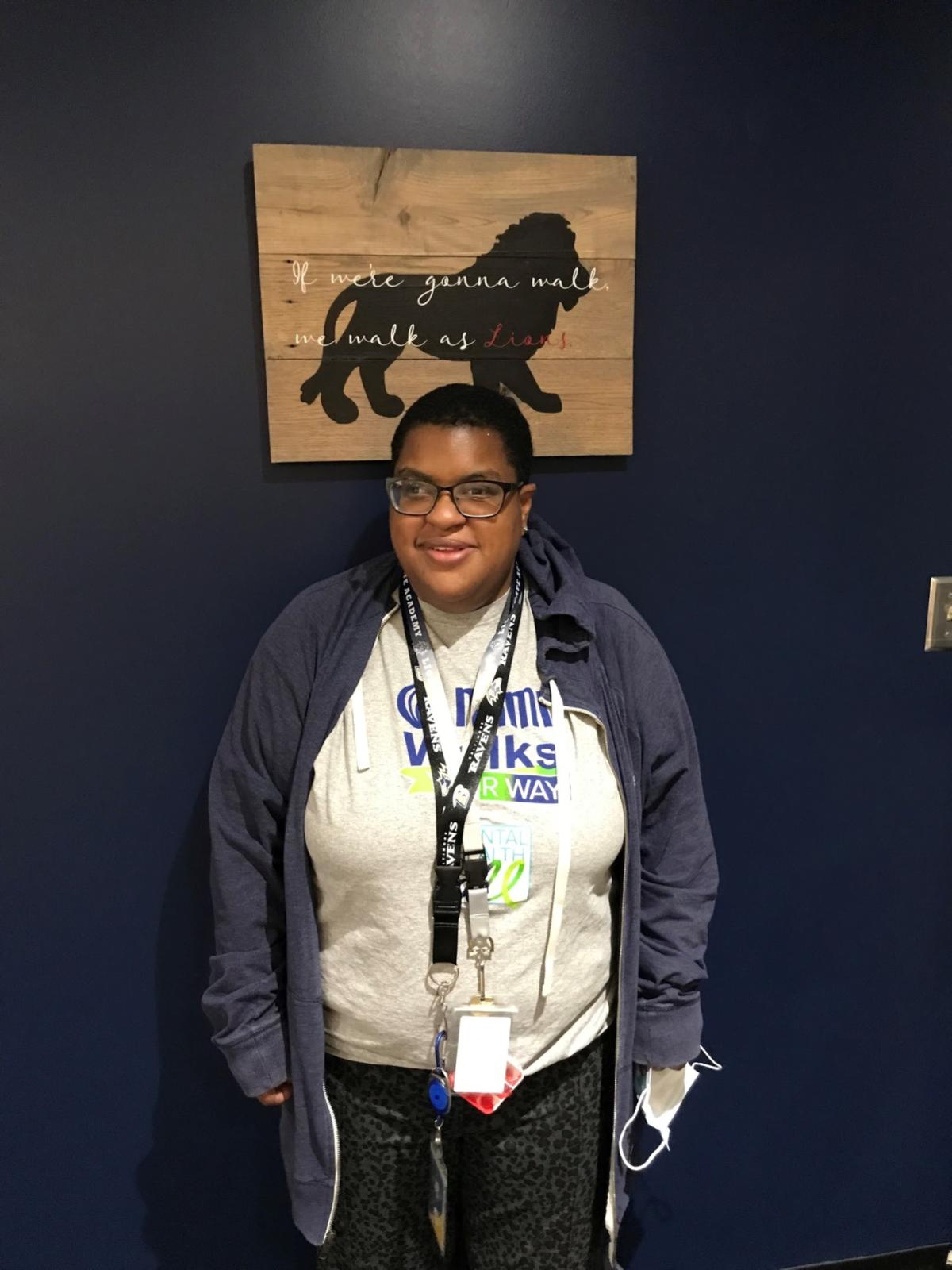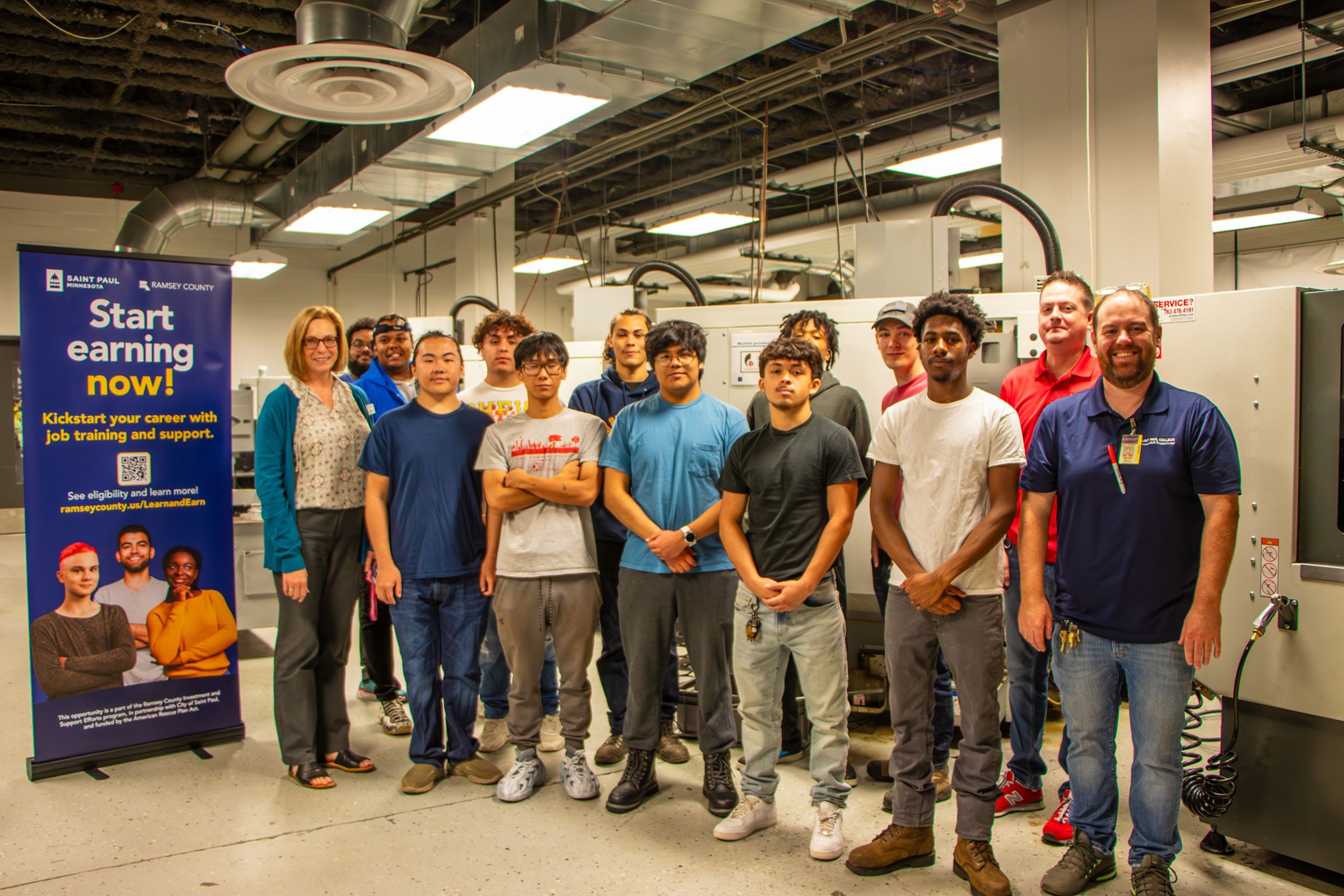Workforce News
The Journey Towards Racial Equity for Employers
29 December 2021
The Journey Towards Racial Equity for Employers
By De’Vonna Pittman, Director of Inclusive Growth, Center for Economic Inclusion
The journey towards racial equity looks different for every organization. Ramsey County’s Economic Competitiveness and Inclusion Plan zoned in on several recommendations, including an opportunity to partner with Ramsey County businesses to focus on racial equity, retention, and hiring goals. Ramsey County, The Workforce Innovation Board and the Center for Economic Inclusion are actively partnering with businesses in Ramsey County to build more inclusive workplaces.
On October 14, 2021, the Center for Economic Inclusion, in partnership with Ramsey County, launched the 2021 Inclusive Workplaces Cohort, with the WIB’s support. The goal of the cohort is to accelerate employers’ ability to advance racial equity and inclusion within their organizations and to support businesses who aim to leverage and sustain a more inclusive and sustainable workforce.
The purpose of the cohort is to collaborate with businesses to optimize hiring and retention strategies by incorporating a racial equity lens and to recognize the unique diversity that exists within businesses. Many of the businesses have expressed gratitude for the sessions and are eager to optimize their current racial equity processes. As business leaders are sharing their own plans about how they will implement strategies, they appreciate the safe space for impactful and meaningful conversation within the cohort.
Some businesses are further along in their journeys toward inclusion and have racial equity plans in place, while others don’t know where to begin or how to address the lingering disparities they have identified within their workplaces. The Center is helping businesses understand that every step toward closing racial wealth gaps starts with shared accountability and making small changes that lead to collective impact.
Bias Interrupters are Tweaks to Existing Systems
In July, an article by SHRM specifically articulated how to get at addressing structural racism within the workplace by speaking to bias interrupters, and lists small changes and tweaks to get started on an organization’s racial equity journey. These changes point to a journey of minimal shifts in practices that provide quantifiable results:
"If you want to address structural racism, you have to address the structures that support [it]," said Joan Williams, founding director of the Center for Work Life Law at the University of California, Hastings College of Law in San Francisco. She recommends conducting research to identify areas of possible bias, determining what metrics to use to measure change, and then making small adjustments called “bias interrupters.”
Bias interrupters are tweaks to existing business systems, such as those related to hiring, performance evaluations, work assignments, promotions, and compensation, that stop and correct implicit biases, also known as hidden or unconscious biases, she said.
"If you make surgical tweaks to basic business systems, you can have a measurable impact on bias in one year's time without ever talking about bias," Williams said.
The Center is leading the cohort facilitation and encouraging accountability through safe and brave spaces that honor participants’ learning journeys. The Center uses a comprehensive racial equity lens and levers of systems change to increase racial equity competency and knowledge. The learnings will position businesses to scale their operations with racial equity at the forefront.
Businesses might also begin to look toward advancing racial equity and embedding inclusive strategies into their work by taking specific steps, such as those the Annie E. Casey Foundation points to as integral in its Embracing Equity Guide. Casey calls for establishing an understanding of race equity and inclusion principles, engaging affected populations and stakeholders, gathering and analyzing disaggregated data, conducting a systems analysis of root causes of inequities, identifying strategies and target resources to address root causes of inequities, conducting race equity impact assessment for all policies and decision making, and continuously evaluating effectiveness and adapting strategies.
These are all strategies that the Center for Economic Inclusion is partnering with Ramsey County businesses to adopt as they embark on their individual racial equity journeys. The Inclusive Workplaces Cohort sessions strategically build on one another, providing a foundation for businesses that haven’t begun exploring racial equity tools or strategies. The cohort is also an outlet to test ideas and goals of those who are on a journey that include racial equity plans and strategies.
The cohort meets monthly for 90 minutes and will conclude August 2022. Click here to learn more.
-----------
About the Center for Economic Inclusion
The Center for Economic Inclusion is committed to closing racial employment, income, and wealth gaps, and building racially inclusive and equitable regional economies. Founded in 2017, the Center is the nation’s first Black woman-owned and led organization dedicated exclusively to strengthening public- and private-sector civic infrastructures and collective capacity to disrupt systems and influence market forces while advancing an inclusive economy. Through the Center’s Employer Inclusivity and Inclusive Growth Consulting Services, the Center partners with employers, like Ramsey County, who also seek to increase competitiveness and profitability by centering racial equity, inclusion, and belonging. Click here to learn more.













